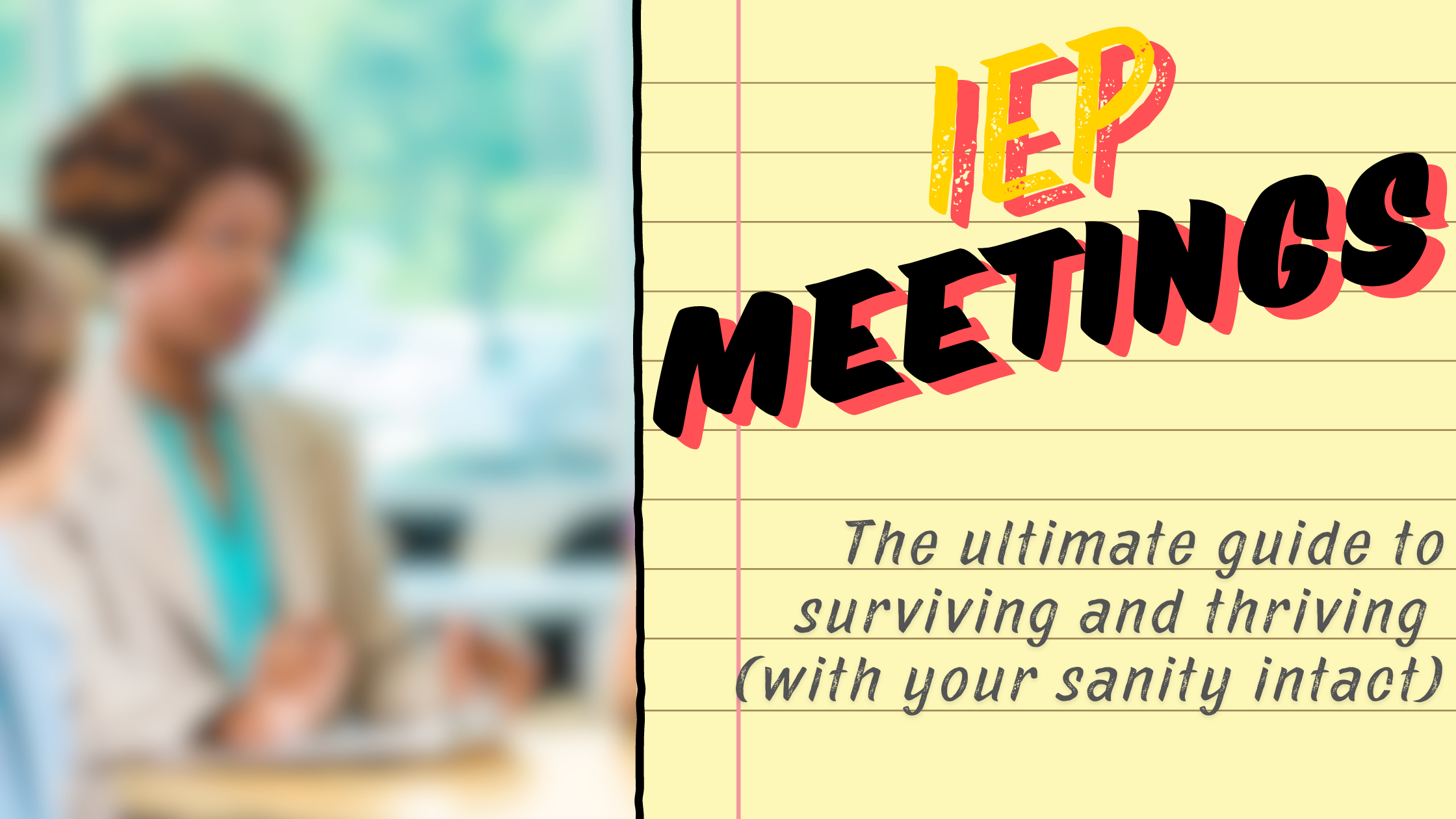IEP Meetings: The Ultimate Guide to Surviving and Thriving (with your sanity intact)
August 9, 2024

Individualized Education Program (IEP) meetings are a crucial part of your child’s educational journey, especially for children with Autism and other developmental disabilities. These meetings can be both empowering and overwhelming for parents. Understanding the purpose of an IEP meeting and knowing what to expect can help you advocate effectively for your child’s needs. In this blog post, we’ll explore common concerns parents have about IEP meetings, share practical tips for preparing, and outline key goals to focus on during the meeting.
What is an IEP Meeting?
An IEP meeting is a formal gathering where parents, educators, and specialists come together to develop or review an Individualized Education Program (IEP) for a student with special needs. The IEP is a legal document that outlines the specific educational goals, services, and accommodations your child will receive to support their learning and development.
Common Concerns from Parents
- Feeling Overwhelmed by Jargon and Technical Terms:
- It’s common for parents to feel overwhelmed by the specialized language used in IEP meetings. Don’t hesitate to ask for clarification or a simpler explanation. It’s important that you fully understand the terms and provisions being discussed.
- Worrying About Getting the Right Services:
- Many parents worry that their child might not receive the necessary services or accommodations. Be prepared to discuss your child’s unique needs and have any relevant documentation ready, such as reports from therapists or evaluations.
- Feeling Outnumbered:
- It’s easy to feel outnumbered in a room full of professionals. Remember, you are an expert on your child. Don’t be afraid to voice your opinions, ask questions, or request more time to consider the information presented.
- Concern About Meeting the Child’s Needs:
- Ensuring that the IEP meets all of your child’s needs can be challenging. Focus on specific areas where your child requires support, and don’t hesitate to request changes or additions to the IEP if you feel something is missing.
Preparing for the IEP Meeting
- Gather Relevant Documents:
- Collect any reports, evaluations, or assessments related to your child’s progress and needs. These documents can provide valuable insights during the meeting.
- Know Your Rights:
- Familiarize yourself with your rights under the Individuals with Disabilities Education Act (IDEA). Understanding your legal rights can help you advocate more effectively for your child.
- List Your Concerns and Questions:
- Prepare a list of concerns, questions, and goals you want to address during the meeting. This can help you stay focused and ensure that all important topics are covered.
- Bring a Support Person:
- Consider bringing a friend, family member, or advocate to the meeting. Having someone else present can provide moral support and help you process the information discussed.
Key Goals for the IEP Meeting
- Setting Realistic and Achievable Goals:
- The IEP should include specific, measurable goals tailored to your child’s unique needs and abilities. These goals should be realistic and achievable, promoting your child’s growth in areas such as academics, social skills, communication, and daily living skills.
- Determining Appropriate Services and Supports:
- Discuss the services and supports your child will need to achieve their goals. This may include speech therapy, occupational therapy, behavioral interventions, or specialized instruction. Ensure that the services are clearly outlined in the IEP.
- Establishing Accommodations and Modifications:
- Identify any accommodations or modifications your child will need in the classroom to support their learning. This could include things like extended time for tests, modified assignments, or the use of assistive technology.
- Creating a Plan for Progress Monitoring:
- It’s important to establish how your child’s progress will be monitored and communicated to you. This might involve regular updates, progress reports, or meetings to review the IEP’s effectiveness.
- Building a Collaborative Relationship:
- A positive and collaborative relationship with the school team is essential for your child’s success. Be open to suggestions from the educators and specialists, and express your willingness to work together to support your child’s growth.
Navigating IEP meetings can be challenging, but with preparation and a clear understanding of your child’s needs and rights, you can advocate effectively for their education. Remember, the goal of the IEP is to provide a tailored educational plan that helps your child reach their full potential. At ABA Solutions, we’re committed to supporting families through every step of the educational process. If you have any questions or need assistance with IEP meetings, don’t hesitate to reach out to us.
